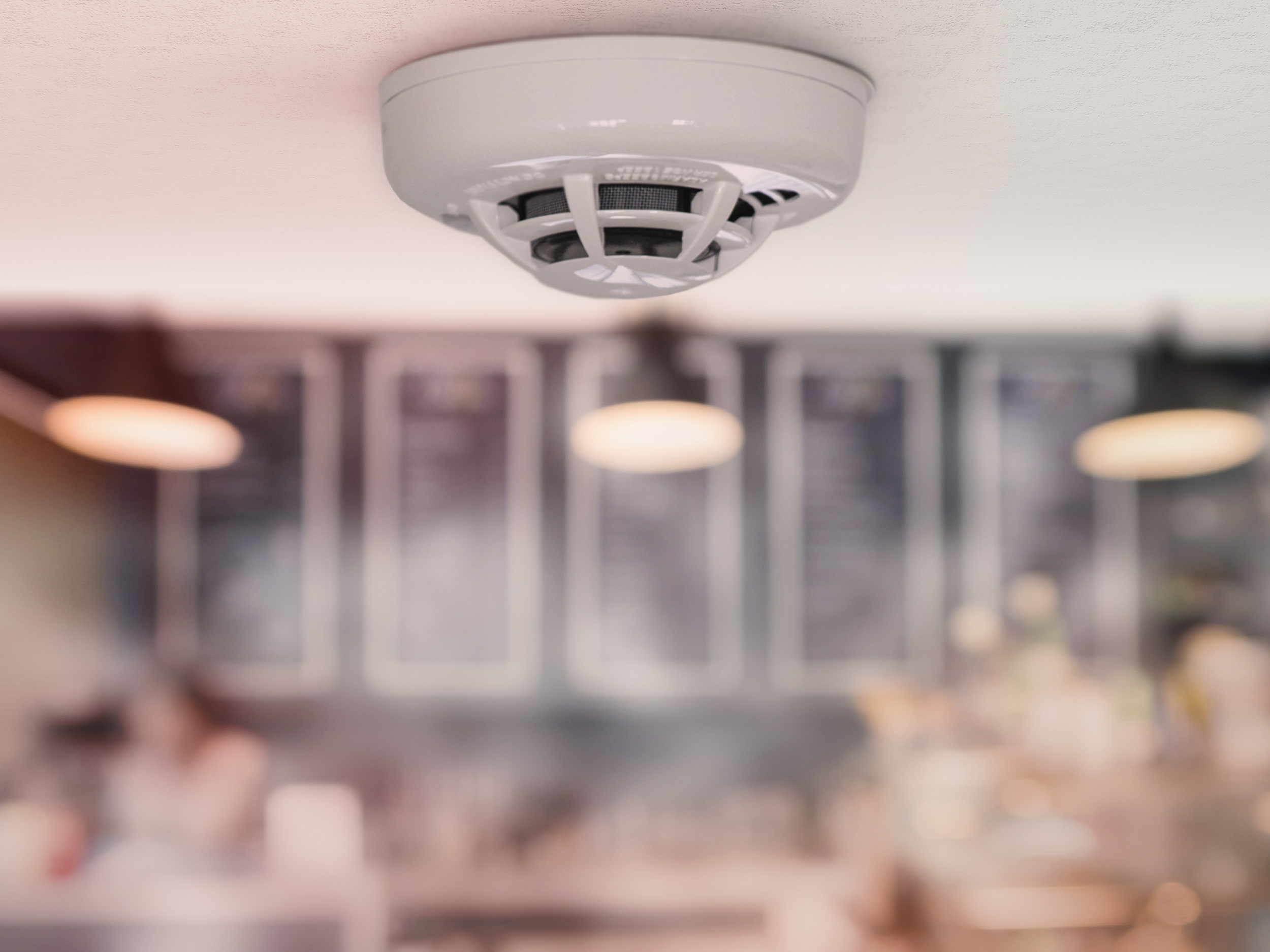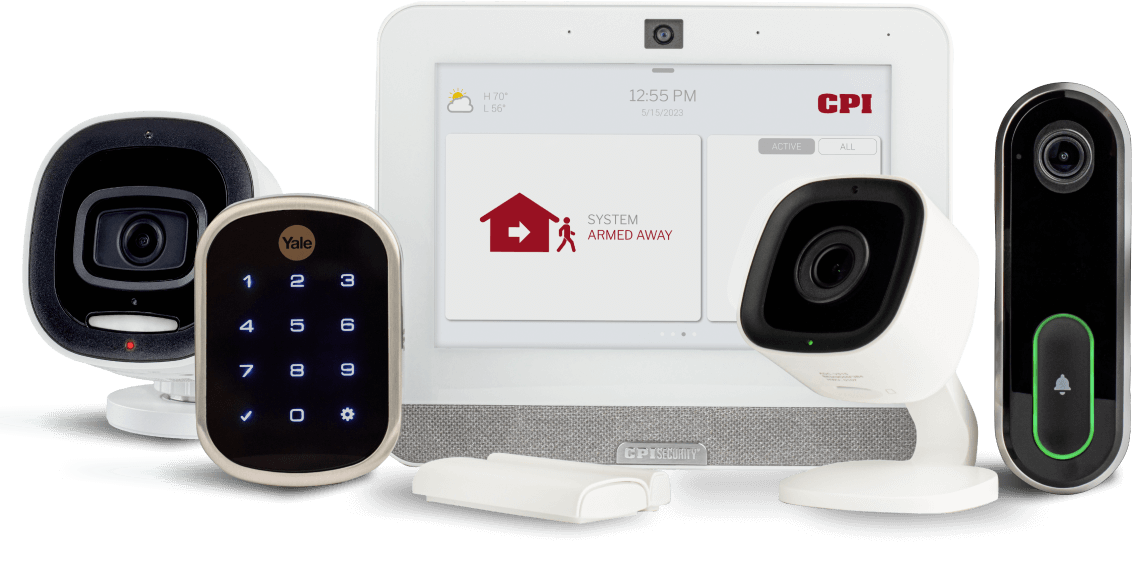As entrepreneurs and office managers, understanding the complexities of fire safety may not be part of your weekly priorities, but that doesn’t make it less important. Frustratingly, fires remain a real and prevalent threat to modern businesses, often striking when least expected and leaving a trail of destruction that’s not only financial but emotional and, at times, irreversible. Whether you oversee a bustling retail outlet, a spirited office space, or the hustle of a restaurant’s kitchen, this blog post is your blueprint for fortifying your business against the menace of fire.
Importance of Fire Safety at Workplaces
According to the National Fire Institute Reporting System, there are over 16,500 office and store fires every year. While many of these are contained or extinguished quickly, some blaze up into devastating events that result in injury, fatalities, and costly impacts on operations.
But why does this matter?
Beyond the legal, integrating robust fire safety protocols creates a culture of preparedness and care. Employees appreciate the commitment to their well-being, boosting morale, and loyalty. For businesses, it signifies risk management, providing insurance not only for property but for the continuity of operations and customer trust in your brand.
So, how can you help mitigate your chances of a fire at your business? Read on.
Fire Safety in Retail Environments
The skyscraping shelves and mazes of merchandise in retail outlets aren’t just a shopper’s paradise. They’re also playgrounds for fire hazards; electrical surges, flammable materials, and even storefront cooking can conspire to turn any retail space into a fire ground.
Retail outlets, with their diverse inventory and high customer footfall, are prone to a range of fire hazards. Some of the more common fire hazards at a retail store include:
- Overworked electrical systems.
- Blocked walkways and exit routes.
- Flammable or combustible merchandise stacked near each other.
- Not enough fire extinguishers or working fire alarms for the size of the store.
Tips for Preventing Fires in Retail Environments
Having a strong fire safety initiative protects assets and inventory and, more importantly, safeguards the lives of employees and customers. Here are additional tips to consider for preventing fires in retail environments:
Installation of Smoke Detectors and Fire Alarm Systems: Strategically place smoke detectors and fire alarm systems throughout the retail space, including storage areas, to ensure early detection of fires.
Use of Fire-Resistant Materials in Construction and Decor: Opt for fire-resistant materials when designing or renovating your retail space.
Implementing a Comprehensive Fire Safety Plan: Develop and maintain a detailed fire safety plan that includes evacuation routes, meeting points outside the building, and fire reporting procedures.
Regular Inspection of Fire Suppression Systems: Ensure that sprinkler systems, fire extinguishers, and other fire suppression equipment are inspected and maintained according to local regulations.
Control of Ignition Sources: This could involve keeping combustible materials away from heat sources, using protective guards or barriers, and ensuring that electrical appliances are used and stored correctly.
Safe Disposal of Waste: Implement a policy for the regular disposal of waste and ensure that bins are emptied frequently to prevent the build-up of materials that could easily ignite.
By integrating these additional safety measures into their fire prevention strategies, retailers can create a safer environment for their customers and employees.
Fire Safety in Office Spaces
Whether your office is a bustling corporate headquarters, a dynamic co-working space, or a quiet, small business setting, implementing effective fire safety measures is essential. Fire risks in an office environment are quite varied and can result from several factors. Here are some of the typical fire hazards that could occur:
- Overworked Plug Sockets and Extension Cables
- Faulty Wires
- Human Error
- Cluttered Office Space
- Portable Heaters
- Accumulated Dust and Debris
- Blocked Walkways and Fire Escapes
- Unattended Cooking Appliances
Strategies for Minimizing Fire Risks in Offices
With so many potential hazards, here are the key steps you can take to help minimize fire in the office:
Regular Equipment Maintenance: Regularly maintain all office equipment, including heaters and cooking appliances, to ensure they are in good working condition and do not pose a fire risk.
Proper Electrical Safety: Avoid overloading sockets, regularly inspect electrical equipment for damage, and ensure proper maintenance of electrical systems. Consider getting a professional electrician to do a thorough check periodically.
Policy on Outside Equipment: Implement a clear policy regarding the bringing in of outside equipment, such as space heaters or personal appliances. These items can pose a significant fire risk if they are faulty or used improperly. The policy should outline safety guidelines and may require prior approval before such equipment can be used in the office.
Controlled Smoking Areas: If smoking is allowed, designate specific areas for it and equip these areas with proper extinguishing containers. This helps to prevent accidental fires caused by improperly discarded cigarette butts.
Clear Evacuation Routes: Keep all fire exits and evacuation routes clear of obstructions at all times. Regularly conduct fire drills to familiarize staff with the evacuation process and to test the effectiveness of your fire safety measures.
Install and Maintain Fire Detection Systems: Install smoke alarms, heat detectors, and automatic fire suppression systems like sprinklers. Regularly check these systems to ensure they are functioning properly.
Fire Safety in Restaurants
In a bustling restaurant, maintaining a safe environment is paramount. One of the most critical areas to monitor is fire safety, as kitchens can present numerous potential fire hazards. Here are some typical fire hazards that can be found in a restaurant:
- Poorly Maintained Cooking Equipment
- Electrical Appliances
- Flammable Liquids and Aerosols
- Grease Accumulation in Vents/Ducts/Traps
- Improperly Stored Combustibles
- Poor Kitchen Ventilation
- Lack of Fire Safety Equipment
- Untrained Staff and Human Error
Suggestions for Preventing and Managing Fires in Restaurants
Practices like never leaving cooking surfaces unattended, maintaining safe distances from hot equipment, and promptly cleaning grease build-up can make the difference between a controlled situation and a catastrophic aftermath. Here are steps you can take to keep your restaurant safe from fires:
Regular Equipment Maintenance: Regularly service and maintain all cooking equipment to ensure they are functioning correctly and safely.
Proper Storage of Flammable Materials: Store flammable liquids and aerosols properly, away from heat sources to prevent accidental ignition.
Frequent Cleaning: Clean kitchen hoods, ducts, and vents frequently to prevent grease accumulation, which can easily ignite and cause a fire.
Safe Disposal of Combustible Materials: Safely dispose of or store combustible materials like paper products, cardboard boxes, and wooden pallets away from heat sources.
Efficient Ventilation System: Ensure the kitchen is well-ventilated to prevent the build-up of heat and smoke, which could lead to a fire.
Make Fire Safety Equipment Readily Accessible: Essential fire safety equipment like extinguishers, fire blankets, and automatic fire suppression systems should be within easy reach while in the kitchen and other key areas of the restaurant.
Fire Safety in Medical Offices
A medical office may be a bastion of health, but it’s not impervious to fire. With sensitive equipment, patient records, and more, medical spaces house fire hazards that cannot be left to chance. Medical offices, like any other work environment, can be susceptible to fires if proper precautions are not taken. Here are some common causes of fires in medical offices:
- Faulty Electrical Equipment
- Improper Use of Medical Oxygen
- Mishandling or Improper Storage of Chemical Fires
- Portable Heating Appliances
- Poor Maintenance of Fire Safety Equipment
Recommendations for Maintaining Fire Safety in Medical Facilities
Oxygen-rich environments in operating theaters, the potential for short circuits near sensitive medical equipment, and the need for safely evacuating patients make the fire risks in medical offices especially critical. Here are steps you can take to help mitigate this risk.
Regular Equipment Checks: Conduct regular checks and maintenance of all electrical equipment and medical devices to ensure they are functioning correctly and safely.
Safe Use and Storage of Medical Oxygen: Ensure that medical oxygen is used and stored properly, away from heat sources and flammable materials.
Proper Handling and Storage of Chemicals: Store chemicals safely and provide training to staff on correct handling procedures to prevent chemical fires.
Heating Appliance Safety: If heating appliances are used, ensure they are used safely and never left unattended. They should be placed away from combustible materials.
Enforce No-Smoking Policies: Ensure strict adherence to no-smoking policies within the facility to prevent fires caused by cigarettes.
Safe Disposal of Combustible Waste: Implement proper waste disposal procedures for combustible waste generated by the medical office.
Inspections and Compliance: Regular fire safety inspections should be carried out to ensure compliance with local fire safety regulations. Any identified risks or issues should be addressed promptly.
Proper Installation of Fire Doors: Install fire doors where necessary and ensure they are kept closed to prevent the spread of fire. Regularly check their condition and functionality.
Fire Alarm Systems: These systems provide early warning when a fire is detected, allowing occupants to evacuate safely and promptly. They should be installed throughout the facility, including in patient rooms, hallways, and ancillary areas.
Fire Suppression Systems: These systems help control and extinguish fires before they can spread. They can range from automatic sprinkler systems to clean agent systems that are designed to protect sensitive equipment without causing damage. It’s important to choose a fire suppression system that is suitable for the specific risks and needs of your medical facility.
Fire Safety in Warehouses
In the hustle and bustle of managing a warehouse, it’s easy to overlook the importance of fire safety. But remember, prevention is always better than cure, especially when it comes to fire safety. Here are the more common causes of warehouse and storage space fires:
- Electrical Malfunctions
- Improper Storage
- Careless Smoking
- Poor Housekeeping
- Heating Equipment
- Mechanical Friction
- Hot Works
- Arson
Guidelines for Preventing and Handling Fires in Warehouses
Implementing robust fire safety measures that address these common causes can significantly reduce the risk of fires in warehouses.
Fire Risk Assessment: Conduct a thorough fire risk assessment to identify potential fire hazards and risks.
Fire Safety Plan: Develop a comprehensive fire safety plan that outlines procedures for preventing and responding to fires. It should include evacuation routes, assembly points, and roles and responsibilities of staff during an emergency.
Fire Detection and Suppression Systems: Install appropriate fire detection systems like smoke detectors and heat sensors. Also, consider automatic fire suppression systems such as sprinkler or gas-based suppression systems.
Regular Maintenance: All electrical and mechanical equipment is maintained to prevent overheating and sparks. This includes regular wiring, outlets, machinery, and heating equipment inspection.
Proper Material Storage: Store flammable and combustible materials properly, away from ignition sources and ventilated areas.
No-Smoking Policy: If smoking is allowed, designate specific areas outside the warehouse and provide safe receptacles for extinguishing and disposing of cigarette butts.
Fire Extinguishers: Place fire extinguishers at critical points around the warehouse and train staff on how to use them. Ensure they are inspected regularly and kept in good working order.
Fire Prevention is Fire Safety
Workplace fire safety is not an area to be overlooked or taken lightly. As we’ve explored throughout this comprehensive guide, it goes beyond just compliance with regulations. It’s about safeguarding your most valuable assets – your employees, property, and business continuity.
Remember, the cost of ignoring fire safety can be devastating. On the other hand, the investment in fire safety protects your business from potential loss. It demonstrates a commitment to the well-being of your employees and the sustainability of your operations.
Trust CPI Security for Your Commercial Fire Alarm Monitoring Needs
When it comes to commercial fire safety, nothing is more important than early detection and swift emergency response. That’s where CPI Security’s Commercial Fire Alarm Monitoring can help. Our business fire alarm monitoring service is designed to protect your store or office by ensuring that a potential fire threat is identified as soon as possible and that the appropriate emergency services are promptly notified.
Our state-of-the-art fire alarm systems are designed to detect the earliest signs of a fire, from smoke to heat. Once a potential threat is identified, our 24/7 monitoring center swings into action. Trained professionals assess the situation and immediately dispatch local fire departments if necessary. This quick action can mean the difference between a small, manageable incident and a catastrophic loss.
Don’t wait for a fire to threaten your livelihood. Take a proactive approach to fire safety with CPI Security’s Commercial Fire Alarm Monitoring. Because when it comes to fire, early detection and fast response aren’t just important—they’re everything.




